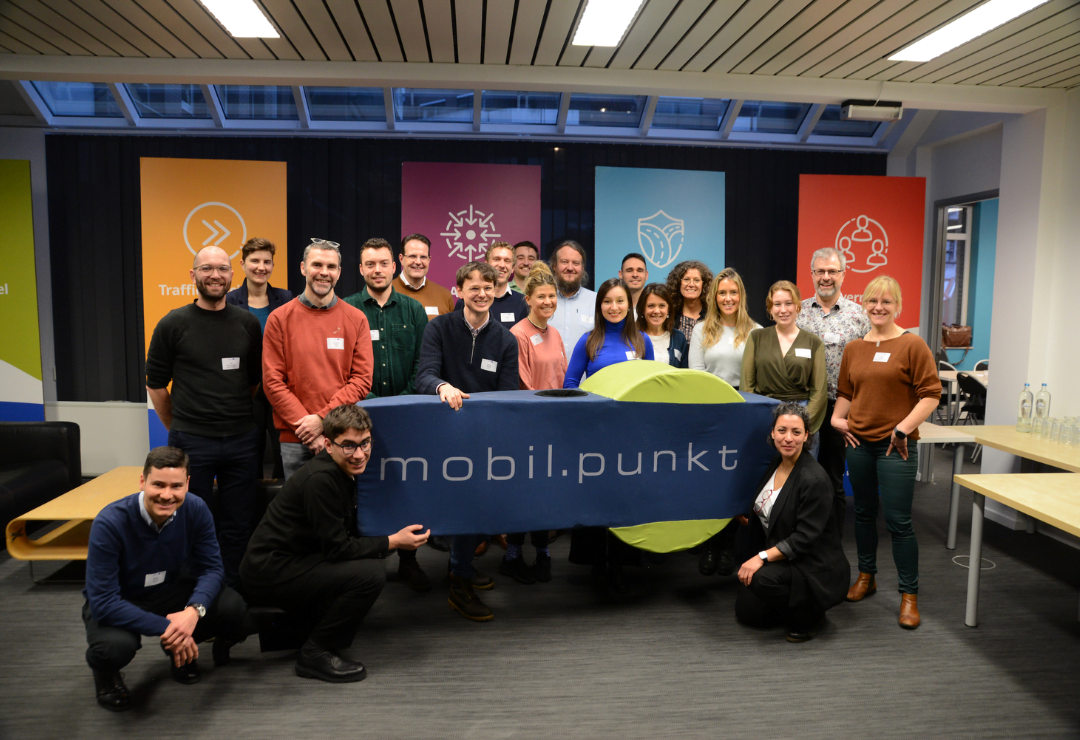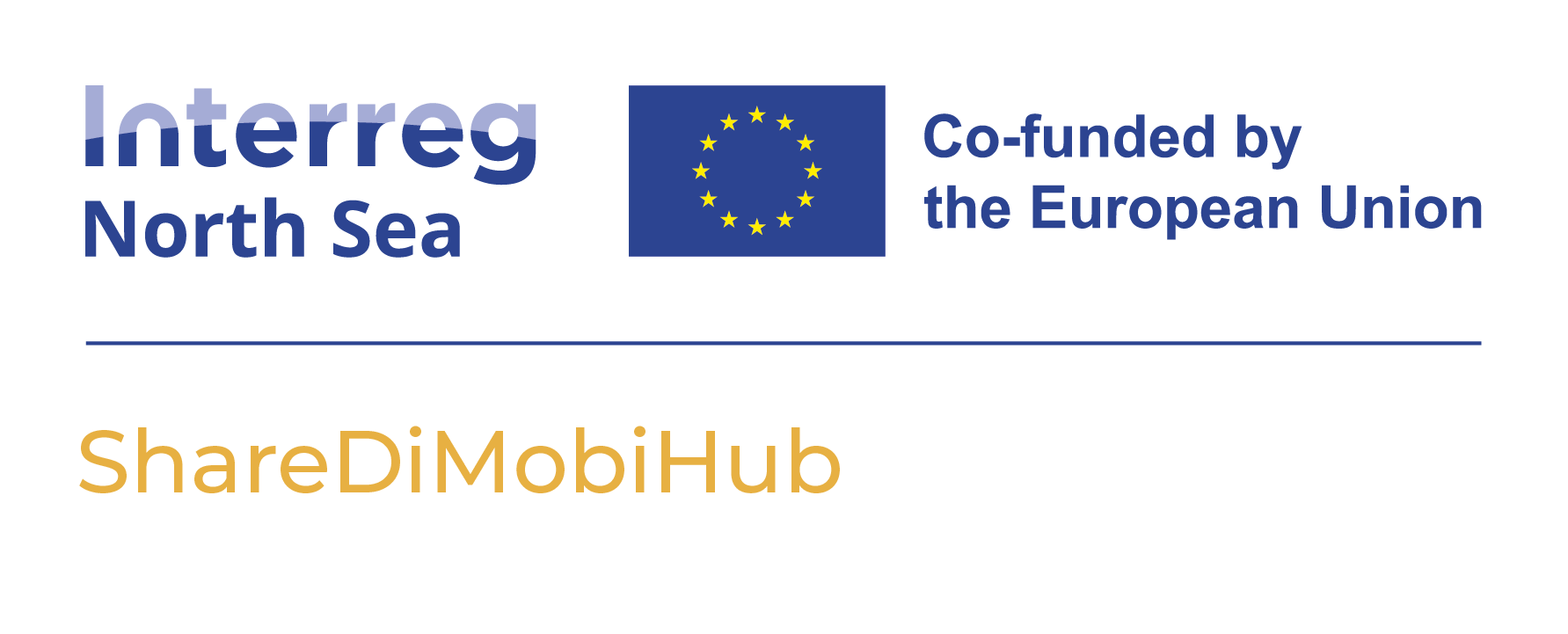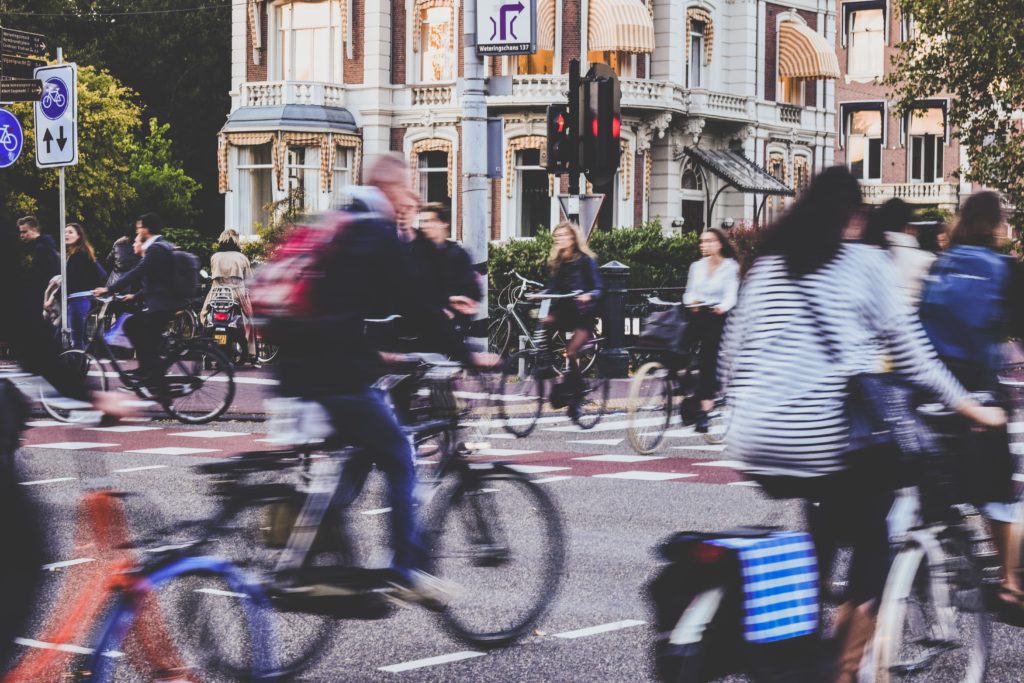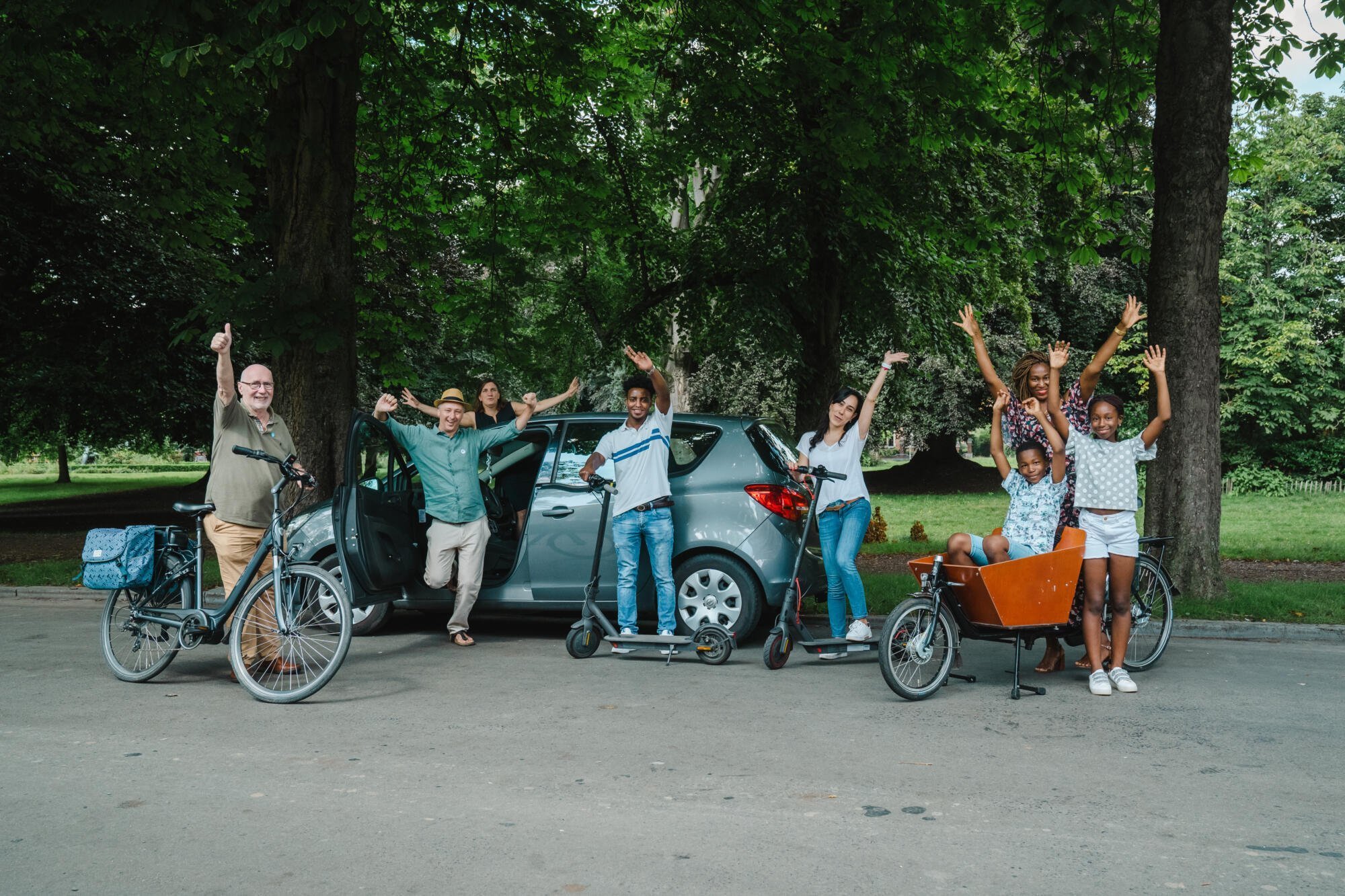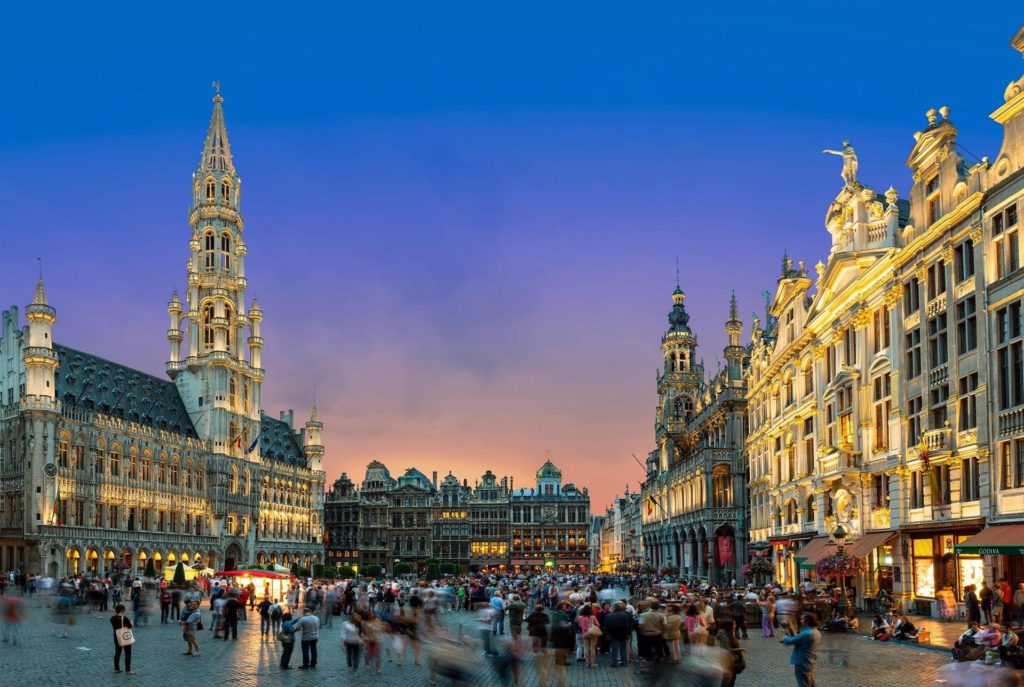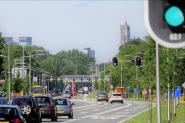The insights from the ShareDiMobiHub Academy are now available!
The ShareDiMobiHub project in the Interreg North Sea Region brought European cities and regions together for a 2-day Academy. This event focused on two important topics: making sure everyone can use shared and digital mobility hubs and integrating these hubs into real estate.
At the Academy, attendees had the chance to learn directly from experts involved in ShareDiMobiHub, SMALL, and SHARE-North Squared projects. They shared insights on how to improve shared and digital mobility hubs, ensuring they are welcoming and accessible to everyone.
Tjalle Groen from Mpact kicked off the academy by introducing our project. The city of Bremen took the lead in explaining the concept behind mobility hubs and their transformative impact on the city over the last two decades. Bremen boasts a rich history in shared mobility, facing similar challenges to many German cities, such as limited street space. Maximizing public use of this space has been a top priority for the local government. Since 1992, Bremen has seen a continuous evolution in shared mobility, culminating in a significant innovation with the launch of mobil.punkt. These public mobility stations in Bremen combine carsharing with public transport, cycling, walking access, taxi stands, and other local amenities.
Regional Strategies and Real State Integration
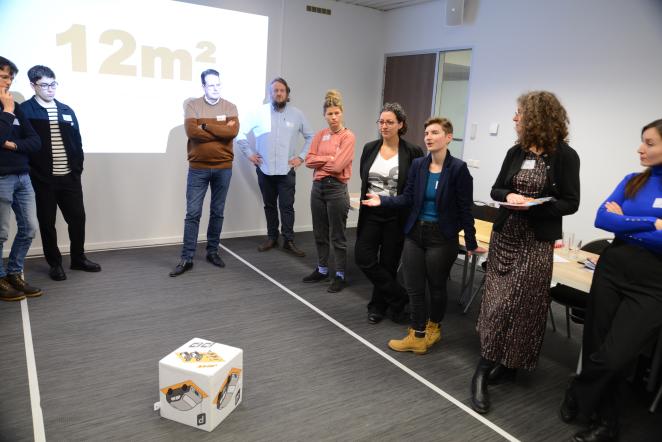 The focus then shifted to regional strategies for developing mobility hubs. Martin Lefrancq and Loïc Nys Taymans shared insights from the POLIS member, Brussels-Capital Region. The region's mobility plan, Good Move, outlines key policies for mobility, aiming to enhance the quality of life in Brussels while supporting its demographic and economic growth. Developed in collaboration with project partners Mpact, the strategic vision for mobility hubs includes an exploratory study on existing knowledge and policy recommendations. It offers tools for the strategic deployment of mobility hubs.
The focus then shifted to regional strategies for developing mobility hubs. Martin Lefrancq and Loïc Nys Taymans shared insights from the POLIS member, Brussels-Capital Region. The region's mobility plan, Good Move, outlines key policies for mobility, aiming to enhance the quality of life in Brussels while supporting its demographic and economic growth. Developed in collaboration with project partners Mpact, the strategic vision for mobility hubs includes an exploratory study on existing knowledge and policy recommendations. It offers tools for the strategic deployment of mobility hubs.
Another POLIS member, the province of Utrecht, leading the ShareDiMobiHub project, then presented its role in managing a complex, evolving mobility landscape in both rural and urban settings. Wouter Slob explained how, as a regional authority, Utrecht is guiding the expansion of shared mobility, hubs, and Mobility-as-a-Service (MaaS) solutions amid shared responsibilities with national and local governments. Next, we explored the connection between mobility hubs and housing policies, including partnerships with real estate and construction industries. Rebecca Karbaumer explained Bremen's recent policy changes with the introduction of the Parking Bylaw in October 2022, which mandates mobility management for new buildings.
Esther De Reys, representing the SHARE-North Squared project, shared examples of effectively integrating shared mobility into real estate. Highlighting cases from Belgium, she outlined five key strategies for success, emphasizing the importance of long-term planning, legal frameworks, and collaboration with developers to create mutually beneficial solutions. The day concluded with a practical exercise. Participants were given the dimensions of a standard parking spot (12 m2). With this, they discussed how to reallocate a specified budget to create various types of parking and shared mobility hubs. This exercise demonstrated how reimagining parking strategies and integrating shared mobility could save both public space and financial resources, potentially allowing for the addition of bike shelters or communal gardens.
How to make shared mobility hubs inclusive?
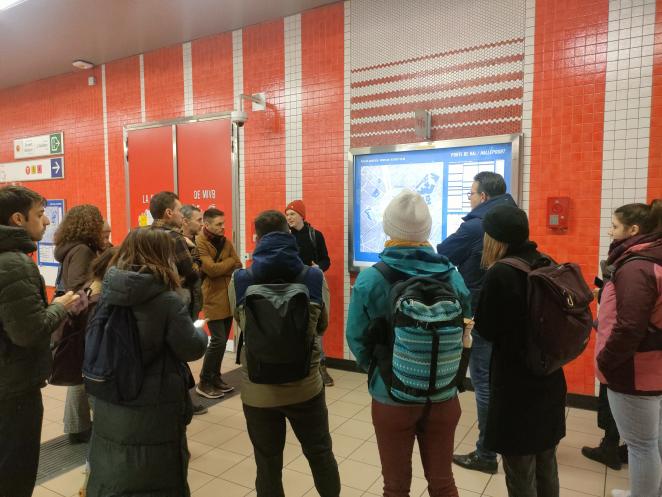 The second day of the event was dedicated to the theme of inclusivity. Lluis Martinez, a researcher from VUB Mobilise and part of the SmartHubs project, focused on making shared mobility hubs more inclusive through user-centered design in his presentation. He discussed how the project is investigating the effects of mobility hubs on accessibility, vulnerability, and resilience within transport networks that include various modes and services, with a particular emphasis on supporting disadvantaged groups.
The second day of the event was dedicated to the theme of inclusivity. Lluis Martinez, a researcher from VUB Mobilise and part of the SmartHubs project, focused on making shared mobility hubs more inclusive through user-centered design in his presentation. He discussed how the project is investigating the effects of mobility hubs on accessibility, vulnerability, and resilience within transport networks that include various modes and services, with a particular emphasis on supporting disadvantaged groups.
Esen Köse followed, sharing insights from the SMALL project, which aims to make shared mobility more accessible to children, families, the elderly, and people with physical impairments. SMALL partners are collectively exploring the needs of individuals with reduced mobility and are testing 11 new solutions. These solutions include trials of new shared mobility services with adapted vehicles, making Mobility-as-a-Service (MaaS) and other digital information services more accessible to people with reduced mobility (PRM), and enhancing voluntary services.
Lastly, the City of Amsterdam addressed their integration challenges in creating inclusive transport options. Geoff Holmes presented a study mapping out transportation options available in Amsterdam for people with reduced mobility and discussed the distribution of transportation use. The Academy proceeded to its second practical session using Mpact's tool, the Hub Inclusivity Test. Afterward, they went on a field trip to Porte De Hal, a multimodal hub with metro, buses, shared cars, and bikes, offering a real-world context for discussions on inclusivity in mobility hubs.
